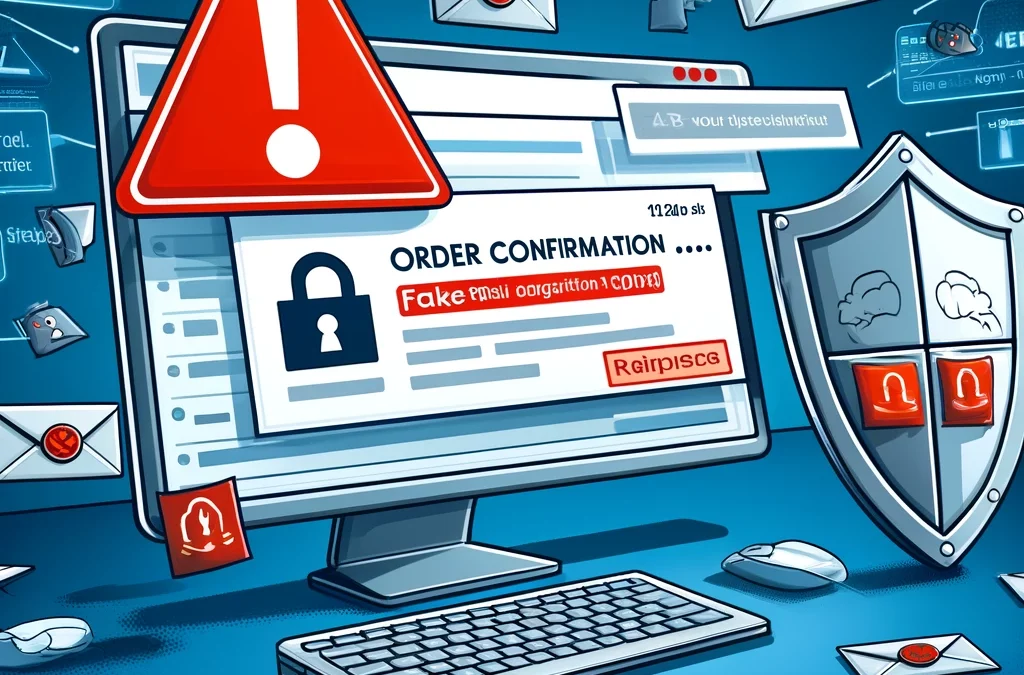Email still remains a critical artery for the flow of information, business transactions, and personal interactions. However, this ubiquity has also painted a target on email’s back, making it a favored avenue for scammers aiming to exploit unsuspecting victims. A concerning trend that has gained momentum is the proliferation of fake email orders. This phenomenon is not just a nuisance; it’s a sophisticated scam operation designed to deceive individuals and businesses alike, often with significant financial consequences.
The Anatomy of Fake Email Order Scams
The modus operandi of these scammers is alarmingly simple yet effective. Individuals or businesses receive an email that appears to be a confirmation of an order they never placed. These fake email orders are meticulously crafted to mimic the correspondence from reputable companies, with GeekSquad being one of the most commonly impersonated brands. The goal? To sow enough confusion and concern that the recipient feels compelled to act.
Embedded within these emails is the bait: a customer support number that the recipient is urged to call if they have any questions or wish to cancel the purported order. However, this number doesn’t connect to the legitimate customer service of the impersonated company but rather to the scammers themselves. Once on the phone, the scammers deploy a variety of tactics to extract personal information, financial details, or direct payment to “cancel” the non-existent order.
Recognizing and Reacting to Fake Email Orders
The key to not falling victim to these scams lies in vigilance and a critical eye. Here are some red flags to watch for:
- Unexpected Order Confirmations: If you receive an order confirmation for a purchase you didn’t make, it’s a significant warning sign.
- Generic Greetings: Scammers often use generic greetings like “Dear Customer” instead of your name.
- Inconsistencies and Errors: Look out for typos, grammatical errors, and inconsistencies in the email address or domain.
- Unsolicited Contact Numbers: Legitimate companies will not pressure you to call an unsolicited number for order disputes.
Upon spotting a suspicious email, the best course of action is to directly contact the company allegedly sending the email through their official website or customer service number. Do not use any contact information provided in the suspicious email.
The Crucial Role of Anti-Spam Solutions
In the fight against fake email order scams, anti-spam solutions are your first line of defense. These tools are designed to filter out potential scam emails before they even reach your inbox, using sophisticated algorithms to detect the hallmarks of spam and phishing attempts. By utilizing a robust mail anti-spam solution, you significantly reduce the risk of these scams reaching you or your employees, protecting both personal and business assets.
The Importance of Local IT Support
While individual vigilance and anti-spam solutions play a critical role in safeguarding against fake email orders, the value of professional IT support cannot be overstated. A local IT provider, such as ATYXIT, brings a wealth of knowledge and experience in dealing with these scams. They can offer customized solutions tailored to your specific needs and vulnerabilities, ensuring an added layer of protection. We stay abreast of the latest scam trends and tactics, enabling us to implement proactive measures to prevent these scams from impacting your operations.
Choosing a local IT partner like ATYXIT means having a dedicated team that understands the unique threats faced by businesses and individuals in your area. They can offer immediate, on-the-ground support and advice, helping to mitigate any potential damage from fake email orders and other cyber threats via our cyber security solutions.
Conclusion
The trend of fake email orders is a stark reminder of the ingenuity and persistence of online scammers. These scams represent a significant threat, exploiting the trust individuals and businesses place in digital communication. However, by staying informed, exercising caution, and leveraging the right tools and support, it’s possible to navigate these hazardous waters safely. Remember, in the digital age, knowledge and preparedness are your best allies against the cunning of cybercriminals.

